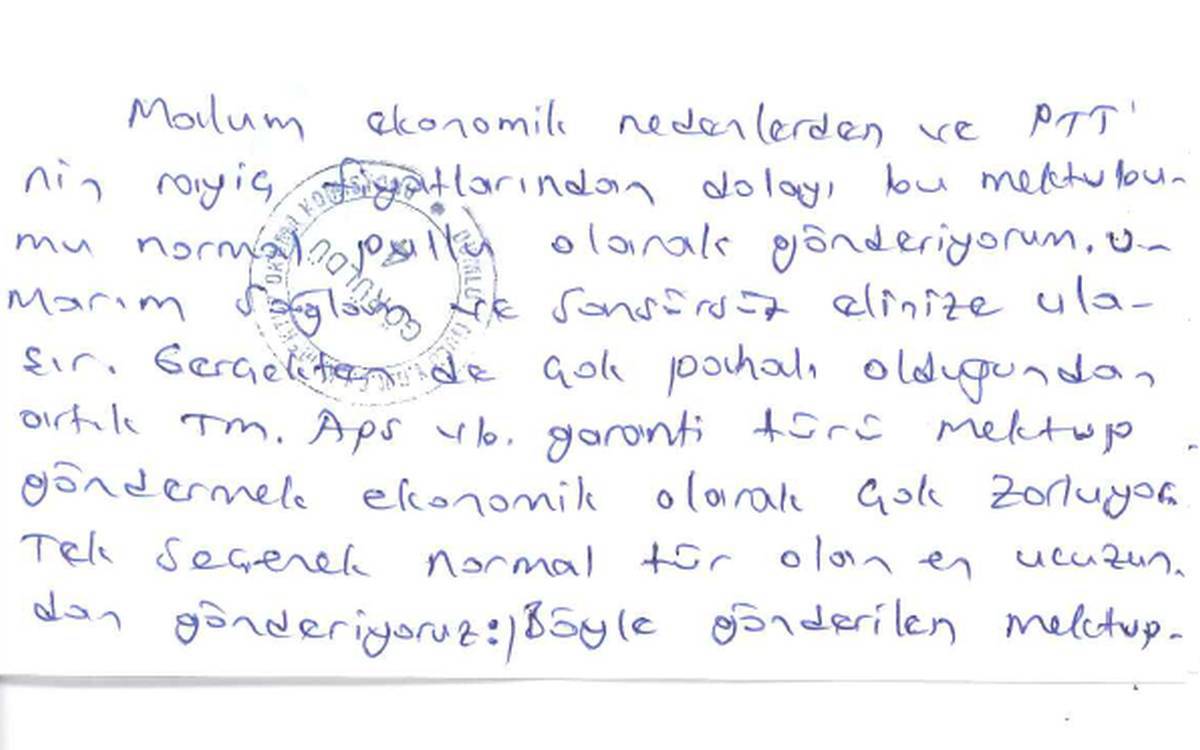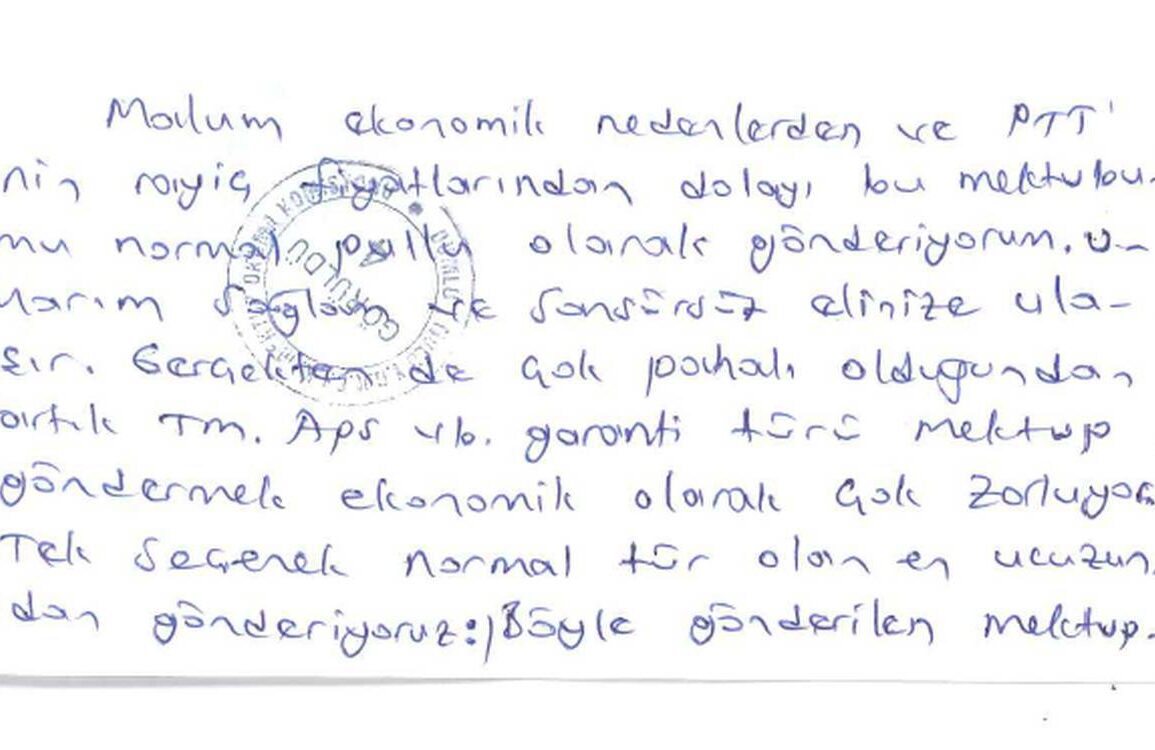
In prison, where the impact of the economic crisis is most deeply felt, inmates are finding it increasingly difficult, and sometimes nearly impossible, to communicate with their loved ones through the seemingly straightforward act of sending a letter. The economic burdens have significantly affected this vital lifeline for prisoners.
One inmate expressed why they are compelled to send their letters as registered mail, saying, “Before the price hike, my monthly letter expense was 200 liras.”
Tracking challenges
Explaining the necessity of using registered mail, the prisoner highlighted the challenges of traditional postage: “In these conditions of isolation, the sole means of socializing is through letters. Most prisoners establish connections with the outside world and friends in other prisons through letters. However, we are forced to send them either as registered or with the Assurance of Postal Security (APS). This is because we cannot track regular stamped letters, and there is no guarantee they will reach their destination. Many have vanished into the depths of history with uncertain delivery dates.”
Facing the economic strain imposed by sending registered letters, the prisoner humorously questioned, “Doesn’t PTT (Turkish Post and Telegraph Corporation) have discounted tariffs, applications, or incentives? Given our functional role in preserving the culture of letter writing, if I were an official at PTT, I would even consider giving rewards to those who write letters…”
Another inmate voiced concerns about the fate of their letters, stating, “Due to economic reasons and the exorbitant prices set by PTT, I am sending this letter through regular mail. I hope it reaches you intact and without censorship. Sending guaranteed letters such as registered or APS has become economically challenging. The only option is the cheapest one—regular mail. However, there is no guarantee that letters sent this way can be legally traced, and they often face obstruction on their way to the address.”
Even the stamps provided by the Civil Society Association of the Penal System (CİSST) to prisoners in the Correctional Execution System were not handed over to them. An inmate from Sakarya Closed Prison wrote, “Unfortunately, the stamps you sent did not reach me; they are probably prohibited and won’t arrive. Nevertheless, I thank you for your effort and consideration.”
Seeking answers
CİSST raised these concerns with the Presidential Communication Center (CİMER), seeking answers to two crucial questions related to PTT’s pricing policies for domestic letter shipments and whether there is a special rate for prisoners:
– What is the change (price increase or rate of increase) in PTT’s domestic letter sending tariff pricing over the past year?
– Is there a special rate applied to prisoners (for letter/fax sending) in PTT?
In response, PTT stated, “Our company determines pricing by taking into account the sending costs and market conditions. The current tariff is transparently shared on our official website, www.ptt.gov.tr. Additionally, there is no discount applied beyond the tariff for letter sending services, including those sent by prisoners.”
Highlighting the challenges faced by inmates, Heval Zelal Avcı, the representative of CİSST for those serving aggravated life sentences, referred to the criteria set by the European Committee for the Prevention of Torture (CPT). Avcı emphasized that prolonged isolation violates the prohibition of torture and ill-treatment, adversely affecting the mental, physical, and social health of those in isolation. The economic crisis, coupled with the rising costs of letter sending, not only hinders inmates’ ability to send letters but also economically obstructs their freedom of communication.
Inmates, already isolated within the prison, find solace in letter writing as a means to connect with the outside world. However, the high costs imposed by PTT and the absence of a discounted tariff specifically for prisoners impede their social interactions, leaving many incarcerated individuals unable to satisfy this basic need through letter correspondence.
(AS/VK)
This post was originally published on this site be sure to check out more of their content.







